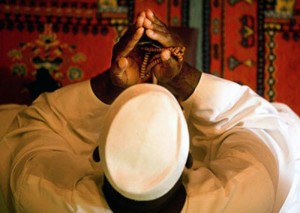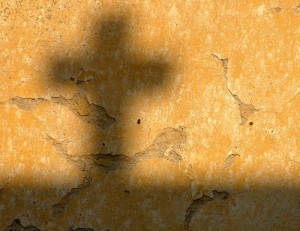
Unless you live under a rock you must have at least heard a passing mention of this: It’s Ramadan.
As a Christian, I do not observe it – but I have an amazed, perhaps even a little envious bit of respect for it.
Understand, my co-religionists, this is no Lent, our Ash Wednesday- to-Easter period originally meant as a serious six weeks of self-denial, reflection, fasting and charity. With few exceptions (some Orthodox Christians are among those still taking it seriously), 21st Century Christians have taken most if not all the sting out of Lent.
Prayer and reflection? Not so much. Fasting? Once, believers went without for weeks, or at least during daylight hours. Now? Forget it. Maybe a nominal Christian will cut back on those cocktails and even donate money or time to a charitable cause . . . but serious self-denial, that’s a non-starter.
Lent is optional, and in practice pretty much interpreted by the individual. How much discomfort are we willing to endure for spiritual clarity? Well, look at the obesity rate for Americans – and Christians in particular – and tell me. Not much.
But Ramadan? With few exceptions, for health mostly, it is mandatory for all Muslims. More most embracing Islam, the month-long period of fasting during the daytime begins with the onset of puberty. And, this is not just cutting out the Twinkies and pop or coffee and donuts. This is a complete fast, from food and water and . . . love-making. Dawn to dusk.
Devout Muslims will pray five times a day, I’m told, and one of the principles behind all that prayer is to constantly remind the believer of his or her place in the Universe, that is, his or her submission to God. Self-discipline, humility and perspective: these principles gets ramped up considerably during Ramadan, the daytime fasting ending with Iftar, a subdued celebratory after-dark meal and time for family prayer.
Of course, whether these principles find a true place in the heart of any particular Muslim depends on his or her devotion and spiritual integrity. Being humans, they are as prone as Christians, Jews, Hindus, Buddhists or practitioners of any other faith to falling into what can become meaningless ritual.
As always, whether these institutionalized self-denials are truly spiritual practices or merely cultural observances depends on the individual.
Still, given the severity and longevity of Ramadan, it seems even the most distracted of cynics, if they participate at all, will have at least a small, beneficial moment of reflection before the fasting ends (this year, on August 29th).

Some says Christians need a Ramadan. Well, we have one of sorts: Lent. Maybe we should just dust it off and make it what it once was . . . if what we truly want is a time of humbling ourselves, in body and spirit, before our God.
If so, it will come down to devotion — whether during a resurrected Lent, as a corporate body of faith supposedly embracing 2 billion souls worldwide, or as individuals quietly giving up a meal or entertainment to make time for opening the eye of the spirit toward God, others and deep inside ourselves. Intentions may not be all – but they are a big part of the spiritual benefit equation.
If not, then you can starve yourself, mutter prayers by the dozen and by rote and make a show of giving to noble causes – all without personal spiritual benefit. Oh, you may receive accolades from those seeing you do these things, but it is the heart of God you really want to please, isn’t it?
Jesus put it this way:
“So when you give to the needy, do not announce it with trumpets, as the hypocrites do in the synagogues and on the streets, to be honored by men. I tell you the truth, they have received their reward in full. But when you give to the needy, do not let your left hand know what your right hand is doing, so that your giving may be in secret. Then your Father, who sees what is done in secret, will reward you.” (Matthew 6:2-4).
Finally, as I’ve appropriated Ramadan for this blog entry, consider this from the founder of Islam, Muhammad:
“Beware! verily there is a piece of flesh in the body of man, which when good, the whole body is good; and when bad, the whole body is bad, and that is the heart.” (Sayings of Muhammad by Sir Abdullah Suhrawardy).

